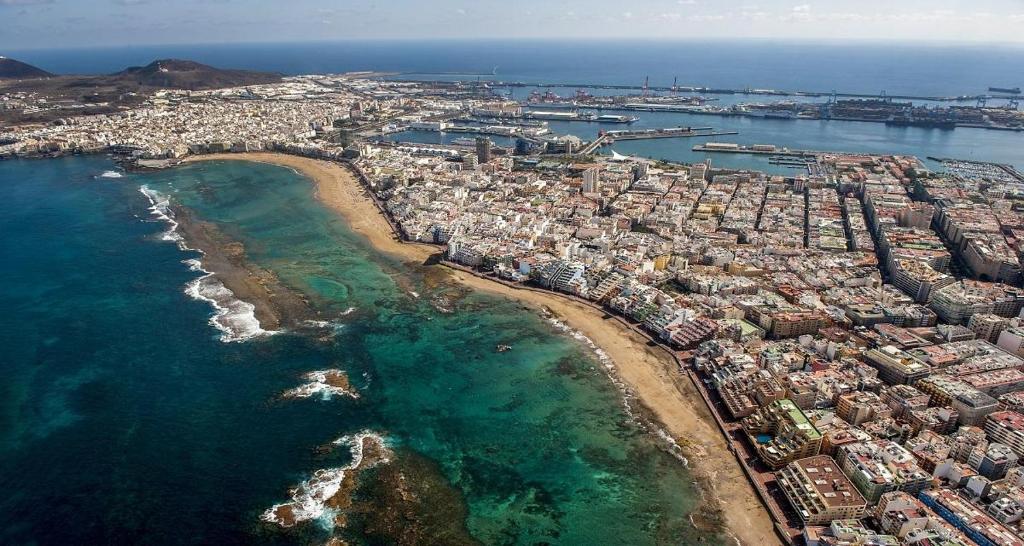Next Thursday and Friday, the International Congress: "From the collaborative economy to sustainable tourism: The new tourism law of the 21st century", which will discuss the latest legal developments affecting the sector, such as digital platforms, artificial intelligence, conflict resolution, the circular economy and the Sustainable Development Goals (SDGs).
This meeting, organised by the Tourism, Territorial Planning and Environment Group (TOTMA) of the University Institute for Research on Aquaculture and Sustainable Marine Ecosystems (ECOAQUA), will take place in the Aula de Piedra of the Rectorate of the University of Las Palmas de Gran Canaria (ULPGC).
Among other issues, the likely approval in the second half of this year, on behalf of the European Union (EU), of a regulation in the form of a more demanding bylaw with the tourist accommodation platforms, such as Airbnb or Booking, will also be addressed.
The regulation will put an end to the current "deregulation", which is now an "escape route" for these platforms. In addition, there will be "more transparency for travellers" and greater rigour with regard to the "volume" of this type of holiday home.
"Inmaculada González, Director of the Group and Professor of Commercial Law at the ULPGC, who is chairing the conference, asserts that "with this stricter regulation of the platforms, we will be able to lay the foundations for regional and local regulation in the Canary Islands, In the Canary Islands we will be able to lay the foundations for regional and local regulations that will finally allow us to regulate a phenomenon that in many cities, as in the case of Madrid, Barcelona or here in Las Palmas de Gran Canaria, is causing a great deal of gentrification in the central districts, which is leading to an increase in the price of renting and buying homes," she notes.

González Cabrera explains that while intermediary platforms such as Airbnb, Homestay, Wimdu, VRBO or Booking itself will be affected by these laws, other systems that allow exchanges, such as Home Exchange, Love House for Home, Stay 4 Free, Couchsurfing, among others, will not be. The former seem to fit better into a business model similar to that of the regulated hotel and non-hotel accommodation sector, while the latter are truly a model of hospitality consumption.
MULTIDISCIPLINARY PROGRAM
However, the collaborative economy does not only affect housing; transport accounts for 62% of investments aimed at promoting associative consumption. In a context driven by sustainability, Spaniards are looking for efficient and sustainable ways to get around, especially in cities. As a result, car sharing is becoming increasingly attractive. Automotive suppliers are at a turning point due to the trends that are already affecting them and the uncertainty of the future scenario of the sector. In this context, the right definition of their strategy is particularly important in order to position themselves proactively and emerge strengthened from the transformation of the sector, and the right regulatory framework to develop becomes a priority.
This and much more will be discussed this week at the congress organised by the TOTMA Group, which will be inaugurated on Thursday in the presence of the Rector of the University of Las Palmas de Gran Canaria, Lluís Serra.
This will be followed by the first panel on "Consumers, entrepreneurs and intermediary platforms", moderated by Juan Carlos Sáenz, Professor of Commercial Law at the Universidad Politécnica de Navarra, and featuring Nuria Fernández, Professor of Commercial Law at the University of Alicante, Rafael Lara, Professor of Commercial Law at the Universidad Politécnica de Navarra, and Patricia Benavides and Eugenio Olmedo, Professors of Commercial Law at the University of Malaga.
The second panel, which will also take place on Thursday, will focus on 'Intervention by Public Administrations' and will be made up of José Eugenio Soriano, Professor of Administrative Law at the Complutense University of Madrid; Lorenzo Mellado, Professor of Administrative Law at the University of Almería; and Pilar Juana García, Professor of Administrative Law at the University of Murcia; Francisco Javier Melgosa, Professor of Administrative Law at the University of Salamanca, and Felio José Bauzá, Professor of Administrative Law at the University of Salamanca; Pilar Juana García, Professor of Administrative Law at the University of Murcia; Francisco Javier Melgosa, Professor of Administrative Law at the University of Salamanca, and Felio José Bauzá, Professor of Administrative Law at the University of the Balearic Islands.
Several oral communications will be presented in the afternoon. The first and second sessions will be coordinated by Iñaki Zurutuza, Professor at the Public University of Navarre.
The following day, the last of the panels will be held on "Tax, Criminal and International Challenges", chaired by María Aránzazu Pérez, Professor at the Universidad Politécnica de Navarra, with the participation of María Ángeles Recio, Professor of Financial and Tax Law at the University of Córdoba; Rafael Carlos Ortega, Professor of Criminal Law at the University of Córdoba; Silvia Feliu Álvarez, Professor at the University of the Balearic Islands; and Carlos Torres, Professor at the Estoril School of Hotel Management and Tourism (Portugal).
The Congress will close with a final session on communication by Afonso Ribeiro, from the University of the Algarve (Portugal). Several posters will also be exhibited during the Congress.


